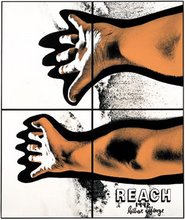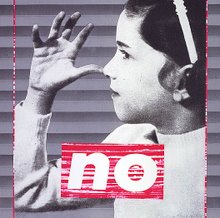We are the champions. I suppose that I really shouldn't be suprised that when Bush said we were going to 'liberate" Iraq, he really ment "suppress the female population by archaic, restrictive, mysogynistic religious edicts." Man, Ari Fleischer did a good job of spinning that one, huh? And I'm not even going to talk about those weapons of mass destruction, which have mysteriously moved to Iran.
In freer Iraq, new curbs on women's wear
By Ilene R. Prusher | Staff writer of The Christian Science Monitor
BAGHDAD – The only parts of Maryam Mohammed and Zeinab Sarowa visible to the world are their hands and faces. But when they come for Friday prayers at the Shiite mosque where they have worshiped all their lives, they are turned away.
The reason: though covered head to toe, they're not wearing the dark, billowing clothing the guard says is required for Muslim women during prayer.
Sulking with her friends outside one of Baghdad's holiest Shiite shrines in the neighborhood of Kadhumiya, Ms. Mohammed says that in the past, even when visiting the world-famous Shiite sites in Najaf and Karbala, no one questioned her dress or barred her from entering.
But that was then. In the new Iraq, religious groups, once under the stifling control of Saddam Hussein, are testing out their newfound elbow room. Some Iraqis view this as the unfettering of faith after decades of a Baathist regime that brutally suppressed religion, particularly the majority Shiites. For others, many women in particular, it is as if the piercing summer sun, which bathes the courtyard of the shrine, is also drying up their liberties before their eyes.
"Thursday they sent my sister away. Who are they? Who put them in charge?" snaps Ms. Sarowa, who finished a political science degree two years ago, but has yet to find a job. "If there were a government here, they wouldn't be able to do that."
There is an authority of sorts at the shrine containing the tomb of Imam Musa al-Kadhum and his grandson, for whom the neighborhood is named. It is called the Hawza el Miya, which is the world's foremost seminary of Shiite religious learning. It is made up of 1,000 scholars who are authorized to issue fatwas, or religious edicts. The word of the Hawza is considered the most authoritative in the Shiite world, and presents a challenge even to the clerics in Iran's holy city of Qom, whose role was elevated by the flight of Iraqi religious leaders during Mr. Hussein's rule.
It is the Hawza, says an armed guard actively turning away women who are not in abaya, who has ordered the enforcement of this new dress code.
Both Mohammed and Sarowa are wearing long, light-colored suit-jackets, floor-length skirts, and hijab, or an Islamic head scarf. But they are not, the guard at door of the dazzling mosque and Shiite shrine complains, wearing the abaya. The abaya, a big and billowing head-to-toe black cloth that is placed over a long black cloak - which itself is worn over a woman's indoor clothing - with a separate, tightly fastened head scarf, is similar to the chador worn by many women in Iran. What Iraqis call the jupeh, a long, straight-cut gown similar the Western equivalent of a housedress, is not sufficient, says Said Alla Azaidi.
"My dear sister," he tells an inquiring woman, "it is an order from the Hawza of Najaf, because all of the body of a woman should be protected. A woman must not show any part but her face to strangers." The coat she wears "must be wide," he says, at least when she's coming to a religious establishment.
The policy, Mr. Azaidi says, began to be instituted after the fall of Mr. Hussein's regime.
"The [long dresses] which open in the front with buttons, that's no good. We don't consider that lawful hijab," Azaidi continues. Nor are light or pastel fabrics, like the whites and blues worn by Mohammed and Sarowa approved.
"When a man who is praying at the mosque looks at a woman with this colorful clothing, he will be distracted by Satan, and she will be distracted, too," he says. The policy could not be enforced in the past, he adds, because "Saddam Hussein was persecuting the Shiites and he didn't want a Muslim society."
No jeans for 'real' Muslims
The quickly evolving dress code is not limited to mosques. At Al Mustansirriye University in Baghdad, new guidelines have been posted on student bulletin boards by "security officers" who say they have been elected to represent the Hawza on campus. On professor complains that Baath Party enforcers are just being replaced by Hawza authorities.
Signs near the campus entrance state: "A [new version of the] hijab appeared in Iraq after the year 2000 in which girls leave part of the head uncovered. Although this is called the French hijab, it is made in Iraq and is widespread in institutions and universities. Therefore we address all believers. They should ask representative of the Hawza for their opinions about such hijab and whether it is allowed."
The sign then goes on to provide an answer from Ayatollah Sheikh Mohammed El Yacuby, an expert on social problems. "The woman who wears such hijab is not a real Muslim and she has no belief in Islam. There is no permission for this kind of hijab," the Ayatollah's response reads. The sign goes on to state that pants, jeans, or culottes are also not allowed.
With such notices popping up in various places, several women complain that they fear things are getting worse, not better, as a result of the US-led invasion. The coalition authorities occupying Iraq have pledged that they will do everything possible to ensure that the new Iraq will empower all groups, including women. L. Paul Bremer, the US civilian administrator in Iraq, says the political council of 25 to 30 members he is appointing next month will certainly include women.
It is not just women who are concerned about religious Shiite muscle flexing.
"The only thing I take exception to is the naiveté to think that woman is the enemy of God. They are imposing hijab, but only in certain [areas]," says Dr. Nadhmi, who is a Sunni living in a Shiite neighborhood. "I wouldn't be reluctant to write articles saying, 'You are making fools of yourselves in imposing the hijab, and not just hijab, but abaya.' "
No imitating Americans
The sudden strictness appears to be applied by zealous individuals who have appointed themselves to the task, and may not be an actual modesty police with authority to enforce new rules.
"We don't have a new policy toward women these days," says Mullah Hamid Rashid al Saadi, a cleric from Sadr City, a poor and predominantly Shiite area that was once forced to call itself Saddam City. "The commitment to wear these things comes from the heart. You cannot enforce it."
That hasn't stopped the guardians at the gates of Kadhumiya. Different guards were spotted turning away women not wearing abaya. In one case, a woman wearing a long black robe and a golden-yellow head scarf - but not the abaya - was told to stay out. When a foreign reporter approached her to ask her what happened, the guard said: "I'll let you in this time, but don't come back like this again." The woman, who declined to give her name, was insulted. "I do not consider myself Sunni or Shiite," she says, "I am just a Muslim, and I have always come here."
Some women say the guards are being reasonable. Women should wear the abaya to attend prayers, some say, and should not come dressed stylishly in pants "like the Sunni women used to be able to," one woman said, as her friends agreed.
Mothers with adolescent girls not in abaya were told that they could come in if they walked with their daughters covered inside the wing of the mother's abayas.
When Friday prayers come at about one o'clock in the afternoon, worshipers listen to a sermon by Sayed Hazem al-Aragy, a cleric who has just returned from exile in Iran.
"The Iraqi people should keep away from the American forces. Students in universities have a heavy task for themselves: to try to stop anyone who tries to imitate the American style, either in dress or in thought," Mr. Aragy said, "because they are trying to spoil Islam and the Muslim shrines."
The young women, disappointed that they could not attend prayers, decided to go shopping instead. "Why are they doing this now? It is important to put freedom in place first. I am ready to go to complain to a human rights organization," says Sarowa. Realistically, she did not expect anyone, especially not the US soldiers sparsely patrolling this neighborhood, to get involved. "Who can say anything to the Hawza? This is a problem for us."


